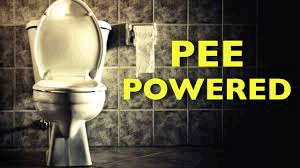|
Plumbing News
Pee-powered 'green' toilet to
light up refugee camps.
 Scientists
in the UK have developed an innovative new plumbing technology that
can convert urine into electricity, with the hopes that the system
can be used to light up the dark corners of refugee camps in
conflict zones. Scientists
in the UK have developed an innovative new plumbing technology that
can convert urine into electricity, with the hopes that the system
can be used to light up the dark corners of refugee camps in
conflict zones.
The pioneering toilet is the result of collaboration between Global
Aid Agency Oxfam and the University of the West of England in
Bristol.
It uses live microbes which feed on urine and convert it into power. Story continues below
↓
advertisement | your ad here
The test urinal is
conveniently located near the University of the West of
England's student bar, where the students produced enough
electricity to power four led light bulbs in the cubicle.
The head developer for the project even theorized that the
student's consumption of more spirited beverages will lead
to more concentrated samples.
The scientists developed microbial fuel cells that use
bacteria grown on carbon fiber anodes that feed on urine,
breaking it down and generating electricity which is stored
in a capacitor.
They used up to 24 of these microbial fuel cells in 2013 to
prove that urine could produce enough electricity to power a
mobile phone.
For the urine-powered toilet they are using has 288 fuel
cells.
The head of water and sanitation at Oxfam said the toilet
could vastly improve women's safety in deprived countries
that often have poorly lit sanitation zones.
The organization hopes to have the first toilet sent out to
a refugee camp within the next six months, and after testing
will be rolled out more widely, initially in camps, but
possibly also in other places without electricity.
# # #
|